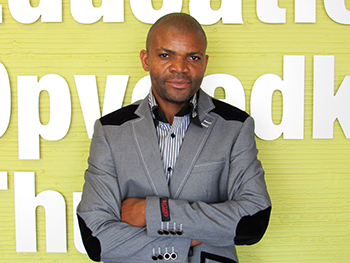Latest News Archive
Please select Category, Year, and then Month to display items
10 March 2022
|
Story Anthony Mthembu
|
Photo Unsplash
 The No Student Hungry team gearing up to start distributing food parcels to the selected students.
The No Student Hungry team gearing up to start distributing food parcels to the selected students.
The UFS is one of the many institutions of higher learning where food insecurity is an active issue. However, the
No Student Hungry Programme is one of the initiatives launched at the university to assist in fighting food insecurity at the institution.
The purpose of the programme
Since its inception in 2011, the initiative has assisted many students in acquiring a healthy meal. Additionally, the Food Environment Office also hands out food packages, so that students can continue to achieve academically. “We are trying to develop a healthy environment for students and make it easier for them to have a nice and healthy meal,” stated Annelize Visagie, who heads the Food Environment Office at the UFS. The Food Environment programme is spread out on all three campuses, each with its own facilitators. Furthermore, the programme mainly caters for students who are not funded by the National Student Financial Aid Scheme (NSFAS) but who are excelling academically. The abovementioned students apply for assistance online, and a list is then drawn up of students who receive assistance for the year.
Alternative solutions to keep the initiative running
On the Bloemfontein Campus, the No Student Hungry Programme will be catering for 200 students in the 2022 academic year, assisting them with a daily nutritious meal. Additional food parcels are also handed out to provide further assistance. “We give food parcels to the students on the list every Tuesday and Thursday at the Thakaneng Bridge,” Visagie highlighted. However, she argues that catering for the student population through this programme can be a challenge, as the demand for assistance is growing rapidly and the ability to assist is limited. The programme relies on partnerships and sponsors to assist the student body. In fact, the coordinators of the programme currently have a memorandum of understanding with Tiger Brands according to which they deliver around 100 food parcels for distribution.
In addition, the coordinators have put in place alternative measures to ensure that they can provide more food to students. “The
Kovsie Act Office, in partnership with the
Department of Sustainable Food Systems and Development, has started a food garden where healthy and nutritious produce are grown, in order to add value to the distribution,” she indicated. Although the programme can only assist to a point, students who are in desperate need of assistance are never turned away. In fact, the
Social Support Unit at Thakaneng Bridge usually assists students with food vouchers for a maximum of four days.
A commitment to teaching healthy eating habits
The programme is not only committed to curbing food insecurity, but also to ensuring that students have a healthy and balanced diet. As such, a booklet is being issued by the
Department of Nutrition and Dietetics in collaboration with the Department of Sustainable Food Systems and Development, which contains ways in which students can make a healthy meal using some of the ingredients offered in the food parcels.
“We want to teach students how to eat healthy in the cheapest way, because they don’t have a lot of money to buy expensive food products,” Visagie argued.
UFS PhD scholar honoured by Free State MEC of Education
2016-12-12

Thabo Sithole was awarded a National Teaching Award
for excellence in teaching Physical Sciences.
Photo: Aneka van der Merwe
Thabo Sithole, a PhD student at the University of the Free State’s (UFS) Faculty of Education, was recently awarded a prestigious award during the provincial National Teaching Awards in November at which he was celebrated along with other teachers from the Free State.
Sithole was awarded for excellence in teaching Physical Sciences, using a variety of strategies to appeal to the different abilities of learners.
He holds a BSc Medical Microbiology, BSc Chemistry, BCom Economics, BSc Hons in Chemistry, BCom Hons in Economics and MA in Mathematics. To qualify to become an educator, he completed his Postgraduate Certificate in Education (PGCE) at UFS.
Apart from teaching, Sithole assists youths confronted with substance abuse and was instrumental in getting funding to assist young people in Jacobsdal. The Albertina Sisulu Youth Recreation Centre in the town now receives annual funding from the Free State Department of Social Development.
Through the National Teaching Awards, the Department of Basic Education acknowledges the extraordinary efforts of teachers, often achieved under very difficult conditions and in service to children from underprivileged families and economically depressed communities.
Leadership is a crucial element to all schools functioning at optimum with all teachers, learners and parents moving forward with a common vision for the improvement of the school.
Sithole’s work also focuses on clustering childhood development centres to work together in order to enhance the preparedness of learners entering primary school. The MEC for Education, Mr Tate Makgoe, said the National Teaching Awards recognised and promoted excellence in teaching.
The UFS Faculty of Education congratulated all teachers in South Africa who worked tirelessly to build a better future for all learners.